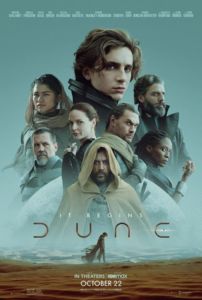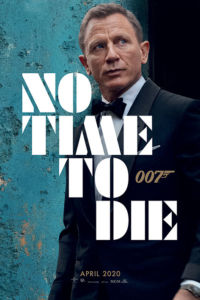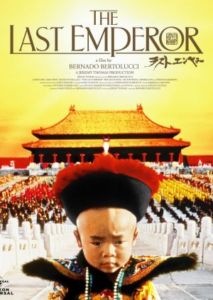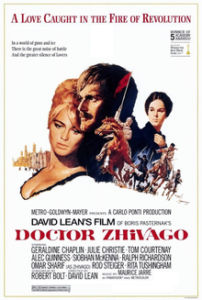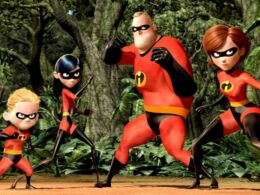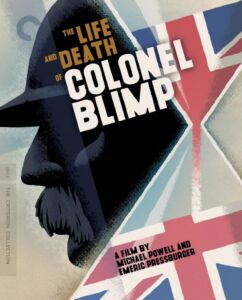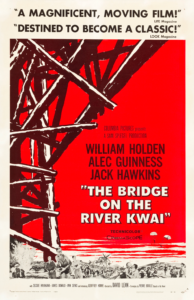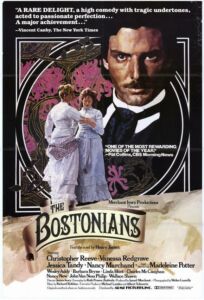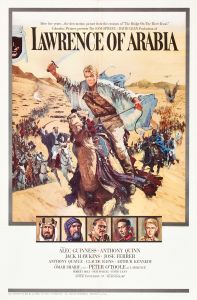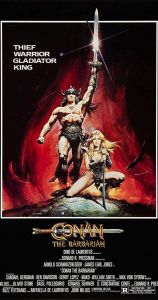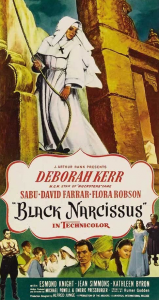Denis Villeneuve’s Dune, Part I is now in theatres. I can’t recommend it. It isn’t terrible. It is merely mediocre. I found it dull to the eyes, grating to the ears, and a drag on my patience. Villeneuve spends 156 minutes and only gets halfway through the novel. David Lynch told the whole story in 137 minutes. Of course audiences are willing to sit through long movies if they are really good: Peter Jackson’s The Lord of the Rings trilogy, for instance. But this film isn’t in that league. (more…)
Tag: Trevor Lynch
-
No Time to Die is an excellent Bond film. It belongs in the company of Casino Royale and Skyfall and quite self-consciously reaches for the heights of On Her Majesty’s Secret Service, which is arguably the best Bond film ever.
I was especially looking forward to No Time to Die because — although it is very much a minority opinion — my favorite Bond actor is Daniel Craig. (more…)
-
When I first saw Bernardo Bertolucci’s The Last Emperor (1987), it struck me as a remake of Doctor Zhivago. Both narratives begin in glamorous and archaic empires that fall to Communist revolutions. Of course, that could just be due to the fact that the Chinese Revolution was something of a remake of the Russian Revolution. But there are parallels specific to the two films, both of which depict Communism as recapitulating the old forms of despotism but as vulgar and brutal farces, stripped of all refinement. (more…)
-
David Lean’s epic anti-Communist romance Doctor Zhivago (1965) is a great and serious work of art. Doctor Zhivago was initially panned by the critics — probably not because it is a bad film, but because it was very bad for Communism. Nevertheless, it was immensely popular. It is still one of the highest-grossing movies of all time, adjusted for inflation. It also won five Oscars — for Best Adapted Screenplay (Robert Bolt), Best Original Score (Maurice Jarre), Best Cinematography (Freddie Young), Best Art Direction, and Best Costume Design. (more…)
-
Brad Bird is the director of three classic animated films: The Iron Giant (1999), The Incredibles (2004), and Ratatouille (2007), as well as the blockbuster sequel The Incredibles 2 (2018). The Incredibles is a superhero film that also pays affectionate homage to the spy movies of the 1960s, especially classic Bond. (more…)
-
August 19, 2021 Trevor Lynch
Strážci (Watchmen)
English original here
Strážci (Watchmen) patří k těm nejpravicovějším – dokonce s fašismem flirtujícím – dílům popkultury posledních let, a to vše i navzdory řádně a plně v souladu s duchem doby levicovému smýšlení tvůrců původního komiksu: autora příběhu Alana Moorea, ilustrátora Davea Gibbonse i Zacka Snydera, autora filmové adaptace, již osobně považuji za ten vůbec nejlepší snímek o superhrdinech, který své předloze nejen že dělá čest, ale dokonce ji v mnoha důležitých ohledech vylepšuje. (more…)
-
One of my all-time favorite movies is The Red Shoes, Michael Powell’s 1948 Technicolor feast about a ballet impresario played by the great Anton Walbrook and his ecstatic, obsessive, and ultimately destructive relationship with his art—and one artist in particular. So you can imagine how eagerly I sought out Powell’s first foray into Technicolor, 1943’s The Life and Death of Colonel Blimp, also starring Walbrook. (more…)
-
Yukio Mishima (1925–1970) was one of the giants of Japanese letters as well as an outspoken Right-wing nationalist. Mishima shocked the world on November 25, 1970, when he and members of his private militia, the Tatenokai or Shield Society, took hostage the commander of the Japan Self-Defense Force’s Ichigaya Camp. Mishima then delivered a speech to the assembled soldiers and press, exhorting the Japanese to turn away from American-imposed consumerism back to their traditional aristocratic culture, which prized honor above life and comfort. (more…)
-
David Lean’s The Bridge on the River Kwai (1957) is not just a great film, it is a nearly perfect one. Even better, it was recognized as such from the start by virtually everyone. The critics lionized it and continue to include it on their “best” lists. The movie business showered it with prizes. Bridge won seven Oscars, including best picture and best director. Audiences made it the biggest film of 1957 and a perennial favorite ever since. (more…)
-
Not every Merchant-Ivory film is a visually lush period drama based on novels by prestigious writers like E. M. Forster and Henry James, but the most memorable ones are, including The Europeans (1979), The Bostonians (1984), A Room with a View (1985), Maurice (1987), and Howards End (1992). Another in this vein is The Remains of the Day (1993), based on a novel by Kazuo Ishiguro. (more…)
-
David Lean (1908–1991) directed sixteen movies, fully half of them classics, including three of the greatest films ever made: The Bridge on the River Kwai (1957), Doctor Zhivago (1965), and, greatest of them all, Lawrence of Arabia (1962). Lawrence of Arabia is repeatedly ranked as one of the finest films of all time, and when one compares it to such overpraised items as Citizen Kane and Casablanca, a strong case can be made for putting it at the very top of the list. (more…)
-
Over the years, I caught bits and pieces of John Milius’ 1982 movie Conan the Barbarian — starring Arnold Schwarzenegger as the big lug himself — on cable TV. But I was never tempted to watch the whole film. I finally gave in when I started writing my series on Classics of Right-Wing Cinema, and friends urged me to add Conan to my list. I admit that a film about Robert E. Howard’s iconic hero, with visuals borrowed from Frank Frazetta, starring the future California Governator, and directed by Right-wing Jew Milius sounds like a formula for a classic of Right-wing cinema, teeming with paleo-masculine heroics and illiberal political realism. (more…)
-
Michael Powell (1905–1990) is one of the tragic geniuses of film: a genius because he is one of the most visually dazzling directors in the history of cinema, tragic because he too often wasted his talents on inferior scripts, most of them provided by his longtime collaborator, Emeric Pressburger, a Hungarian-Jewish refugee to whom Powell often gave co-director credit. (more…)
